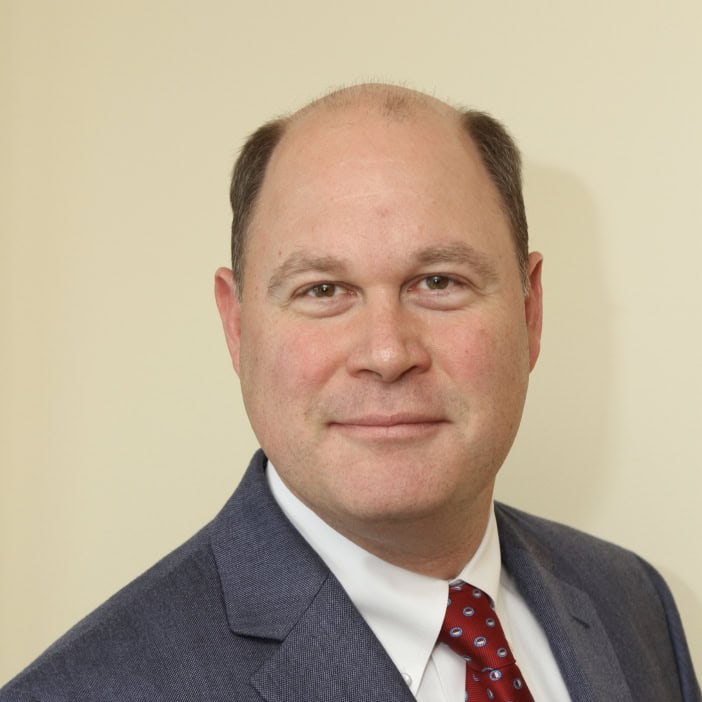
NASBP Virtual Seminars — What you missed and what’s scheduled for the rest of 2013
NASBP Virtual Seminar registrations have remained high over the past months. The Virtual Seminars covered a great assortment of informative topics — some addressed for the first time by a NASBP Virtual Seminar. If you missed any of the NASBP Virtual Seminars held this past summer, review their descriptions below and purchase their recordings by contacting Cathrine Nelson at cnelson@nasbp.org or by clicking here.
Performance Warranties, Extended Duration Warranties, and Liquidated Damages in Construction Contracts: What are the Risks? – Held May 7, 2013
Federal agencies and private developers of engineering-procurement-construction (EPC) projects increasingly are seeking to add performance and/or extended duration warranties to contract agreements to shift substantial risks to contractors. Rolly Chambers, Esq., and Gene Rash, Esq., both partners in the Charlotte, N.C., law firm of Smith, Currie & Hancock, described how surety professionals can help their construction clients understand, evaluate and mitigate the risks of these provisions. In addition, Chambers and Rash described the types of construction contracts and projects that are likely to involve these provisions and pointed out recent trends in their use, including owners using liquidated damages provisions to exact financial consequences from contractors that do not meet performance or extended duration warranties.
Indemnitor Status: Effectively Taking the Indemnity of Traditional and Non-Traditional Entities – Held May 21, 2013
Is your indemnity agreement properly completed? Who should sign the indemnity agreement for an LLC? Can you properly secure the indemnity of a trust, a Native American tribe or an Employee Stock Ownership Plan (ESOP)? If you find yourself asking questions such as these with increasing frequency, you’ll want to hear this Virtual Seminar.” Presenters Chris Indelicato, Esq., and Julie Glick DePhillips, Esq., both senior counsels in the legal department at Liberty Mutual Surety, answered these questions and described how to secure the indemnity of these business entities mentioned. Also, Indelicato and DePhillips reviewed the types of entities an underwriter may encounter when obtaining an indemnity package, the unique aspects of the management and operation of these entities, and the requirements for effectively securing the indemnity for these entities.
FREE VIRTUAL SEMINAR — Navigating The Surety Underwriter’s Desk Book: An Invaluable New Resource for Surety Professionals — Held June 7, 2013
Listeners learned how to quickly find information about each state’s surety laws. NASBP provided this primer on using The Surety Underwriter’s Desk Book, a Web-based publication developed by members of the American Bar Association’s Fidelity & Surety Law Committee. Presenters Chad Schexnayder, Esq., and Mary Alice McNamara, Esq., are the editors of this compendium of contract surety laws for all 50 states, the District of Columbia, Puerto Rico, Guam and Canada. Schexnayder is a partner with Jennings, Haug & Cunningham, and McNamara is second vice president and counsel for the National Accounts unit of Travelers Bond & Financial Products. Schexnayder and McNamara described and demonstrated how surety professionals can navigate this material to quickly and easily find information on specific laws and legal topics. Participants received a link to the Desk Book to navigate in the publication along with the presenters. Links to the free recording of the Virtual Seminar on the Desk Book, the VS presentation outline, and The Surety Underwriter’s Desk Book can be accessed for free at nasbp.org by clicking here.
Introduction to Key Aspects of Large Commercial Accounts – Held June 11, 2013
What are large commercial accounts, and how do they differ from the transactional commercial surety business? Presenters Elizabeth J. Bottemiller, national underwriting manager, commercial surety with The Hartford Fidelity & Surety, and Jeff Broyles, national surety manager with Beecher Carson Insurance Agency, described how surety professionals should manage and underwrite the highly desirable business of large commercial accounts. Bottemiller and Broyles explored what makes an account a large one, the primary underwriting information and focus of large accounts, bond programs for large accounts and how their risk is managed, and the indemnity structure and considerations of these large accounts.
Tribal Bonding 101: Back to the Basics – Held June 25, 2013
Although the bonding of projects on the reservation has been around for over 30 years, new entities and new producers are entering the market every day. Surety professionals who have not been involved before, or those who hesitate to re-enter this market because they are unfamiliar with how it has changed, should be sure to listen to this Virtual Seminar. Listeners learned about assembling a program for an account bidding work on a reservation or a potential tribal account. Expert and presenter Edward Rubacha, Esq., a partner at Jennings, Haug & Cunningham, discussed the key elements of tribal bonding, including what sovereign immunity is and its meaning in the bonding context, dispute-resolution issues in tribal court and tribal law, and surety concerns with tribal entities. For more than 19 years, Rubacha has been representing contractors and sureties in matters relating to tribes and tribal entities on reservation projects. Rubacha is admitted to practice in a number of tribal courts and the state and federal courts of Arizona, California and Colorado, as well as the U.S. Supreme Court, and he is a published author and frequent speaker on the topic of contracting and bonding on Indian reservations.
Recognizing, Shifting, and Mitigating the Risk of Subcontractor Default – Held July 9, 2013
Economic conditions combined with fierce competition for thin profit margins on construction projects make avoiding subcontractor defaults more important than ever for general contractors. Today surety professionals need to understand how to help their general-contractor clients recognize and mitigate the risk of subcontractor default. Presenter Steve Nelson, Esq., chief claims officer of SureTec Insurance, discussed subcontractor prequalification and ongoing qualification. Nelson, who is also president of SureTec Information Systems, reviewed risk-mitigation tools used by general contractors for the emerging, small subcontractor, marginally qualified or “once qualified, now not so much” subcontractor. He also discussed risk shifting through subcontract bonds and subcontractor default insurance. Nelson oversees SureTec’s claims, funds disbursement and subcontractor prequalification operations, mediates construction-industry disputes for others, and teaches construction and procurement law and dispute resolution at the University of Texas School of Engineering.
Accounting Standards Update: Big Changes Now, Bigger Changes Coming – Held July 23, 2013
Presenter Kevin Doyle, CPA, of Lanigan, Ryan, Malcolm & Doyle and moderator Matthew Cashion of The Cashion Company, Inc. addressed accounting standards that surety professionals need to know about their clients’ financial statements including the new requirement to disclose information regarding multi-employer pension plans and its potential effects on construction companies; the Big GAAP/Little GAAP update of particular significance to small, privately-held companies; and upcoming changes to accounting for leases. Also, the presenters addressed how the new FASB revenue-recognition standard will affect financial statements of construction contractors.
Merits of Vehicle Leasing and Fleet Management — Held Aug. 13, 2013
Contractors who manage a fleet of vehicles are constantly concerned about controlling costs and preserving cash. Cost-effectively managing daily operations of the fleet can distract contractors from their core business. Listeners found out how fleet-management companies work with contractors to help them manage this asset and evaluate their funding options including paying cash, financing or leasing. Bryan St. Eve, Catherine Blazer and Adam Cline, representatives of Enterprise Fleet Management, described how these decisions affect the balance sheet, banking relationships and bonding capacity.
Recording to be posted soon of this Virtual Seminar — Update: Changes Affecting the Bonding and Regulation of Property Brokers and Surface Freight Forwarders — Held Aug. 27, 2013
This Virtual Seminar addressed the statutory changes and their impact on the underwriting environment of property-broker bonds that are required of transportation or freight brokers, who arrange the transportation of merchandise by common carrier for a shipper. The transportation bill signed into law last summer affects the regulation of property brokers, domestic-freight forwarders and trucking firms. Producers Colleen Clarke, vice president of business development for Roanoke Underwriting — A Division of Roanoke Insurance Group, and Matt Zehner, vice president of surety information and communication of Roanoke Insurance Group, will give an update focusing on the 650% increase in the minimum amount of the property broker’s bond, which is required on Oct. 1, 2013.
For more information about obtaining a recording of a past NASBP Virtual Seminar, contact Cathrine Nelson at cnelson@nasbp.org or visit nasbp.org to see a list of Virtual Seminars held in previous years by clicking here.
Upcoming NASBP Virtual Seminars
Nine informative NASBP Virtual Seminars are scheduled through the end of the year, so be sure to place these on your calendar.
- September 10 — 10 Steps to Preparedness presented by Bob Boyd of Agility Recovery and moderated by Matt Cashion of the Cashion Company
- September 24 — Essential Components for the Sales Organization presented by Jonathan Dick, a consultant and strategist for Fortune 500 and private companies, and moderated by NASBP President Lawrence F. McMahon of Alliant Insurance Services, Inc.
- October 8 — Environmental Issues presented by Larry Howard of The Guarantee Company of America
- October 18 — Errors & Omissions Insurance, presenters to be determined
- October 22 — The New American Institute of Architects (AIA) Sustainable Building Contract Forms presented by Joshua Balance of the AIA and Martha Perkins, NASBP General Counsel
- November 5 — Internet Security for the Surety Professional presented by Barbara Kissner of International Fidelity
- November 19 — An Update on the Nation’s Infrastructure presented by Linda Figg of Figg Engineering Group
- December 3 — Generations Working Together presented by Patricia Pippert of P2 Enterprises, a Chicago-headquartered group that provides corporate training
- December 17 — NASBP Government Relations Year in Review presented by Mark McCallum and Larry LeClair of NASBP
Tips to Keep in Mind
Registration for each NASBP Virtual Seminar opens a few weeks before the presentation date. Check the NASBP Virtual Seminar web page for updates. NASBP Virtual Seminars are held usually on Tuesdays from 2 to 3 p.m. Eastern Time. The $69 registration fee includes the live presentation and prepared written materials. If a registrant discovers that they are unable to participate at the time of the Virtual Seminar, they have the comfort of knowing that the recording of the telephone briefing will be sent to them.
For more information about NASBP Virtual Seminars, click here or contact Cathrine Nelson at cnelson@nasbp.org.
Get Important Surety Industry News & Info
Keep up with the latest industry news and NASBP programs, events, and activities by subscribing to NASBP SmartBrief.




